About Ascension Alexian Brothers – Behavioral Health Hospital
Their inpatient treatment supports adults who are struggling with mental health and substance abuse concerns. Mental health specialists on staff include licensed counselors, psychiatrists, and psychologists. These professionals diagnose and treat a variety of mental illnesses, including substance use disorders, anxiety disorders, depression, bipolar disorder, eating disorders, panic attacks, PTSD, and schizophrenia. Treatment methods include one on one counseling and family counseling.
Intensive outpatient programs are available for adults and adolescents. This partial day program allows you to meet with licensed counselors, psychiatrists, and psychologists to receive treatment for mental health and substance abuse disorders. The program runs three hours per day, four days per week. Day and evening options are available for adults, and day or after school programs are available for adolescents. Methods of treatment include individual, marital, and family counseling, group therapy, and relapse prevention therapy.
The Center also partners with nearby high schools and middle schools to provide onsite mental health services focused on early identification and prevention. Assistance can be provided through counseling, school staff meetings, and family consultations.
In addition to in person therapy, they offer virtual visits with psychiatrists and psychologists. Services include one on one counseling, marriage and family counseling, and substance use and addiction treatment.
They may accept most forms of commercial insurance. Verify your coverage with your individual provider as out of network benefits can vary.
Facility Overview
Latest Reviews
Rehab Score
Gallery
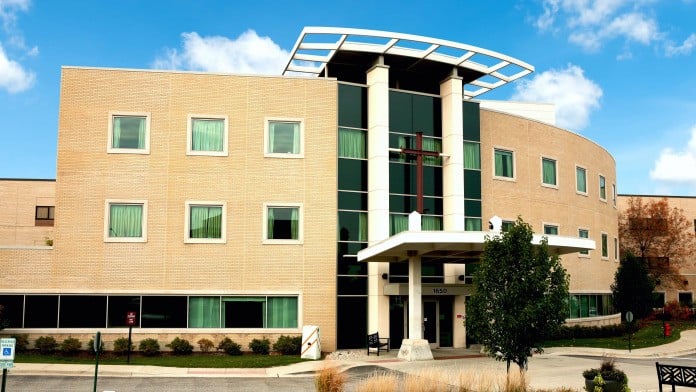
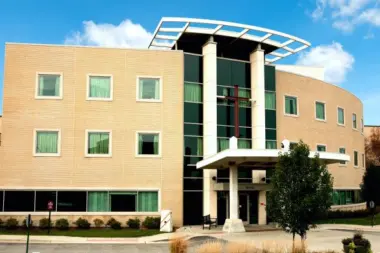
Accepted Insurance

Other Forms of Payment
Private insurance refers to any kind of healthcare coverage that isn't from the state or federal government. This includes individual and family plans offered by an employer or purchased from the Insurance Marketplace. Every plan will have different requirements and out of pocket costs so be sure to get the full details before you start treatment.
Self-pay involves paying for treatment out of your own pocket. You can use savings or credit, get a personal loan, or receive help from family and friends to fund your treatment. If you don't have insurance or your insurance plan doesn't cover a specific program, self-pay can help ensure you still get the care you need.
Sliding scale payments are based on a client's income and family size. The goal is to make treatment affordable to everyone. By taking these factors into account, addiction recovery care providers help ensure that your treatment does not become a financial burden to you or your family, eliminating one barrier to care.
Medicare is a federal program that provides health insurance for those 65 and older. It also serves people under 65 with chronic and disabling health challenges. To use Medicare for addiction treatment you need to find a program that accepts Medicare and is in network with your plan. Out of pocket costs and preauthorization requirements vary, so always check with your provider.
Military members, veterans, and eligible dependents have access to specific insurance programs that help them get the care they need. TRICARE and VA insurance can help you access low cost or no cost addiction and mental health treatment. Programs that accept military insurance often have targeted treatment focused on the unique challenges military members, veterans, and their families face.
Medicaid is a state based program that helps lower-income individuals and families pay for healthcare. Medicaid covers addiction treatment so those enrolled can use their coverage to pay for rehab. When a program accepts Medicaid the client often pays very little or nothing out of their own pocket.
Addiction Treatments
Levels of Care
The Outpatient Adolescent Chemical Abuse Program offers structured after-school program provides group and individual therapy to help manage mood and maintain sobriety, thorough evaluation of any concurrent emotional, behavioral, or cognitive problems, group therapy four times a week, family therapy to plan treatment and changes to the family system, liaison with school to communicate progress and advise about school interventions, mandatory participation in self-help groups outside the program three times a week, parent-only support group, weekly multi-family group to improve communication and problem solving skills, random drug screens and/or breathalyzers, and aftercare support groups.
When participating in an inpatient rehab program, you'll reside at the treatment center for the duration of the program. Your housing and meals are provided, allowing you to focus on your recovery without outside triggers, stressors, and other distractions. You'll receive daily addiction counseling, drawing on various psychotherapeutic approaches like cognitive behavioral therapy (CBT) and motivational interviewing. Many inpatient drug rehabs also offer complementary holistic therapies, such as yoga, meditation, or animal therapy, and creative arts therapy.
The Intensive Outpatient Program runs 3 hours per day and offers either morning or afternoon programming for 4 days per week. The Intensive Outpatient Program offers day and evening programs for adults, day or after-school programs designed specifically for adolescents, individual, marital, and family counseling, group therapy, family communication programs for adolescents and their parents, and aftercare services such as therapeutic groups to discuss relapse prevention.
12-step programs are addiction recovery models based on Alcoholics Anonymous (AA). A number of substance abuse programs (including some drug and alcohol rehab centers) use the 12 steps as a basis for treatment. Beginning steps involve admitting powerlessness over the addiction and creating a spiritual basis for recovery. Middle steps including making direct amends to those who've been hurt by the addiction, and the final step is to assist others in addiction recovery in the same way. 12-Step offshoots including Narcotics Anonymous (NA), Cocaine Anonymous (CA), Dual Recovery Anonymous (DRA), Sex and Love Addicts Anonymous (SLAA) and Gamblers Anonymous (GA).
Intervention Services helps family or friends of addicts stage an intervention, which is a meeting in which loved ones share their concerns and attempt to get an addict into treatment. Professional intervention specialists can help loved ones organize, gather, and communicate with an addict. The Substance Abuse Feedback & Education Program (SAFE) is an early intervention for employees who have tested positive for drugs or show other signs of substance abuse. The Family Options Program is antervention program for adolescents experimenting with alcohol or drugs and their parents.
As a flexible option, a partial hospitalization program (PHP) is tailored for those who don't require 24-hour care. PHP treatment can include daily therapeutic sessions and services such as relapse prevention and medication management. Based on your needs, PHP treatment duration can average 90 days and require a minimum of 20 hours of commitment weekly. While a partial hospitalization program typically requires a commute, telehealth may be available. PHP treatment costs can vary but are often covered by most insurance.
The Chemical Dependency Program at Alexian Brothers Behavioral Health Hospital is an abstinence based treatment program which means that abstinence from alcohol and all mood altering addictive substances is required. This includes abstinence from any medications which may have been prescribed for an individual, but are addictive in nature. The Adult Outpatient Detoxification offers supportive care while withdrawing from alcohol or drug use, specialized treatment team to ensure medical stability, thorough evaluation to identify other conditions that may be present and identify treatment goals, and full medication services including education on the medications you are taking and monitoring your progress to ensure positive treatment development.
Treatments
The goal of treatment for alcoholism is abstinence. Those with poor social support, poor motivation, or psychiatric disorders tend to relapse within a few years of treatment. For these people, success is measured by longer periods of abstinence, reduced use of alcohol, better health, and improved social functioning. Recovery and Maintenance are usually based on 12 step programs and AA meetings.
Drug rehab in Illinois is designed to help people recover from addiction to a number of substances. The length of each program and its intensity tend to vary, and the plan of care is based on your individual needs.
The Center for Addiction Medicine also treats patients who have both addiction issues and psychiatric diagnoses. Treatment goals emphasize education and relapse prevention to manage combined addiction and psychiatric problems effectively. The treatment program provides education and support to help patients understand how to incorporate the following into their recovery: abstinence from all addictive mood-altering substances and behaviors, 12-step meetings and other community-based support groups, identifying and utilizing an appropriate 12-step sponsor, exercise, good nutrition, a sense of spirituality to build back inner self, morals, values, and beliefs, awareness of negative thinking patterns and other relapse triggers, learning coping skills to manage relapse triggers, urges, and other relapse patterns, develop an individualized relapse prevention plan for continued abstinence, and understanding the role and proper usage of prescribed medications.
The Center for Addiction Medicine offers a variety of treatment programs and services for adults, adolescents, and families suffering from chemical dependency and other addiction disorders. At Alexian Brothers Behavioral Health Hospital, we address chemical dependency and process addictions (addictive behaviors such as gambling, shopping, and sexual activity) through group lectures and process groups. Treatment provides a solution-focused approach that allows clients to set individual treatment goals in order to develop a solid relapse prevention plan. The involvement of family members and a connection with community-based support groups are part of the patient's treatment goals.
Opioid rehabs specialize in supporting those recovering from opioid addiction. They treat those suffering from addiction to illegal opioids like heroin, as well as prescription drugs like oxycodone. These centers typically combine both physical as well as mental and emotional support to help stop addiction. Physical support often includes medical detox and subsequent medical support (including medication), and mental support includes in-depth therapy to address the underlying causes of addiction.
Programs
Adult rehab programs include therapies tailored to each client's specific needs, goals, and recovery progress. They are tailored to the specific challenges adult clients may face, including family and work pressures and commitments. From inpatient and residential treatment to various levels of outpatient services, there are many options available. Some facilities also help adults work through co-occurring conditions, like anxiety, that can accompany addiction.
Young adulthood can be an exciting, yet difficult, time of transition. Individuals in their late teens to mid-20s face unique stressors related to school, jobs, families, and social circles, which can lead to a rise in substance use. Rehab centers with dedicated young adult programs will include activities and amenities that cater to this age group, with an emphasis on specialized counseling, peer socialization, and ongoing aftercare.
Recovery is most successful when clients feel accepted and validated by their peers and treatment providers. Facilities that offer LGBTQ-inclusive programming are committed to creating a safe space where everyone can grow and recover without fear of judgment or discrimination. They will have dedicated policies in place to create a safe and supportive environment that fosters free expression.
Serving in the military is both mentally and physically challenging, and can result in trauma that persists even after combat ends. Military programs are tailored to the specific and often complex needs of active duty personnel, veterans, and military families. Clients often access these programs through the U.S. Department of Veterans Affairs (VA).
Clinical Services
Cognitive Behavioral Therapy (CBT) is a therapy modality that focuses on the relationship between one's thoughts, feelings, and behaviors. It is used to establish and allow for healthy responses to thoughts and feelings (instead of unhealthy responses, like using drugs or alcohol). CBT has been proven effective for recovering addicts of all kinds, and is used to strengthen a patient's own self-awareness and ability to self-regulate. CBT allows individuals to monitor their own emotional state, become more adept at communicating with others, and manage stress without needing to engage in substance abuse.
Dialectical Behavior Therapy (DBT) is a modified form of Cognitive Behavioral Therapy (CBT), a treatment designed to help people understand and ultimately affect the relationship between their thoughts, feelings, and behaviors. DBT is often used for individuals who struggle with self-harm behaviors, such as self-mutilation (cutting) and suicidal thoughts, urges, or attempts. It has been proven clinically effective for those who struggle with out-of-control emotions and mental health illnesses like Borderline Personality Disorder.
Group therapy is any therapeutic work that happens in a group (not one-on-one). There are a number of different group therapy modalities, including support groups, experiential therapy, psycho-education, and more. Group therapy involves treatment as well as processing interaction between group members.
In individual therapy, a patient meets one-on-one with a trained psychologist or counselor. Therapy is a pivotal part of effective substance abuse treatment, as it often covers root causes of addiction, including challenges faced by the patient in their social, family, and work/school life.
Trauma therapy addresses traumatic incidents from a client's past that are likely affecting their present-day experience. Trauma is often one of the primary triggers and potential causes of addiction, and can stem from child sexual abuse, domestic violence, having a parent with a mental illness, losing one or both parents at a young age, teenage or adult sexual assault, or any number of other factors. The purpose of trauma therapy is to allow a patient to process trauma and move through and past it, with the help of trained and compassionate mental health professionals.
Whether a marriage or other committed relationship, an intimate partnership is one of the most important aspects of a person's life. Drug and alcohol addiction affects both members of a couple in deep and meaningful ways, as does rehab and recovery. Couples therapy and other couples-focused treatment programs are significant parts of exploring triggers of addiction, as well as learning how to build healthy patterns to support ongoing sobriety.
Their treatment team provides weekly Family Nights to which patients are encouraged to bring their family members. Family Night programming offers an opportunity for loved ones to gain a common understanding of how addiction has impacted the family, learn about what it means to be in recovery, identify healthy patterns while learning to discontinue destructive family patterns, and begin to work together towards the process of healing.
Nutrition therapy, aka medical nutrition therapy (MNT), is a way of treating physical, emotional, and medical conditions through diet. Specific dietary plans are designed by professional nutritionists or registered dietitians, and patients follow them in order to positively affect their physical and mental health.
Amenities
-
Residential Setting
Staff & Accreditations
Staff
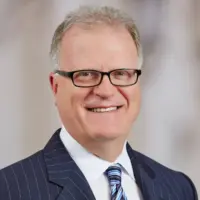
Joseph R. Impicciche, JD, MHA
CEO
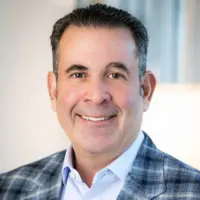
Eduardo Conrado
President

Sally Deitch, MSN, MHA, RN, FACHE
Executive VP, Nursing & Operations
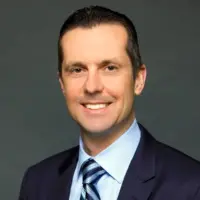
Eric S. Engler
Executive VP & Chief of Staff

Michelle H. Kohler, PhD
ExecutiveVP & Chief Human Resources Officer
Accreditations

The Joint Commission, formerly known as JCAHO, is a nonprofit organization that accredits rehab organizations and programs. Founded in 1951, the Joint Commision's mission is to improve the quality of patient care and demonstrating the quality of patient care.
Joint Commission Accreditation: Yes
Contact Information
1650 Moon Lake Boulevard
Hoffman Estates, IL 60169










